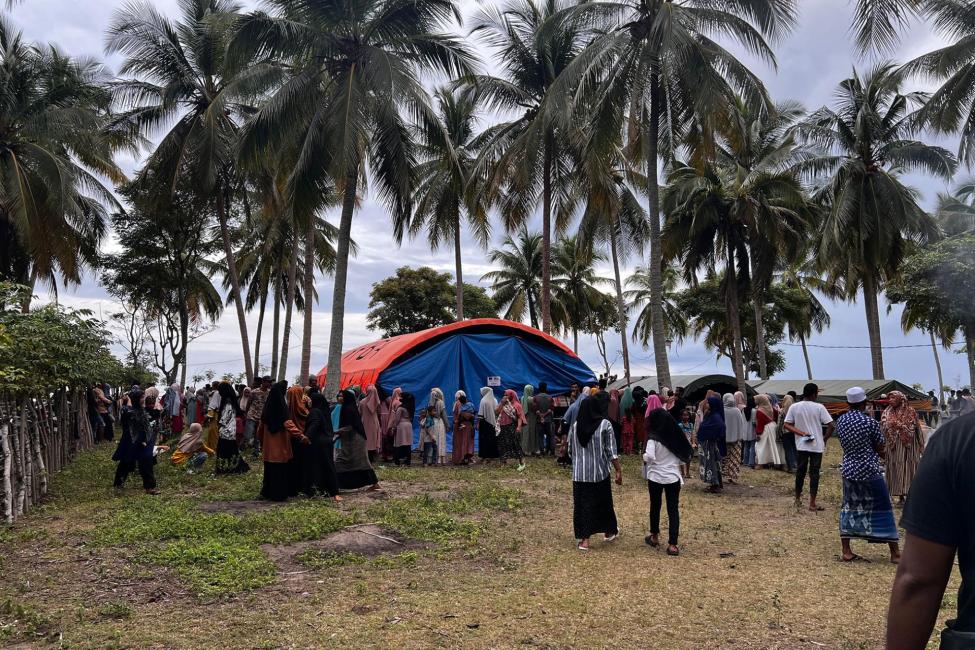-
Who we are
WHO WE AREThe International Organization for Migration (IOM) is part of the United Nations System as the leading inter-governmental organization promoting since 1951 humane and orderly migration for the benefit of all, with 175 member states and a presence in over 100 countries. IOM joined the United Nations system in September 2016.
About
About
IOM Global
IOM Global
-
Our Work
Our WorkAs the leading inter-governmental organization promoting humane and orderly migration, IOM plays a key role to support the achievement of the 2030 Agenda through different areas of intervention that connect both humanitarian assistance and sustainable development.
Cross-cutting (Global)
Cross-cutting (Global)
- Data and Resources
- Take Action
- 2030 Agenda
Adaptation and Mitigation Efforts Must be Enhanced to Address Climate-Induced Displacement: IOM DG
Geneva / Addis Ababa – The International Organization of Migration (IOM) Director General António Vitorino has called for enhanced adaptation and mitigation initiatives to address climate-induced displacement underscoring the importance of stronger partnership among states.
Speaking at a high-level event on the margins of the ongoing 36th African Union Summit in Addis Ababa, Ethiopia, DG Vitorino noted that last year’s the Sharm El Sheik Climate Change Conference emphasized the importance of global solidarity to improve adaptation, mitigation and preparedness, early warning as well as to build the resilience of communities.
"UN Secretary-General António Guterres in Sharm El Sheik made an appeal to double the funding allocated for adaptation,” DG Vitorino said. “This corresponds to IOM's field experience, which demonstrates that people do not want to move but are forced to relocate. If given the choice, they would prefer to stay in the places where their ancestors have lived and where their historical cultures are ingrained.”
Most African countries continue to bear the brunt of the adverse effects of climate change. The East and Horn of Africa in particular is experiencing more frequent and increasingly intense extreme weather events.
The Kampala Ministerial Declaration on Migration, Environment and Climate Change signed by 15 African Member States in the region in July 2022 is one of the most significant frameworks that demonstrate a whole-of-government approach, but also the knowledgeable and proactive outlook of the governments in this region.
DG Vitorino emphasized the need for context-specific adaptation and resilience-building solutions especially in the East and Horn of Africa where millions remain dependent on natural resources for their livelihoods, adding that guidelines for obtaining financing to support adaptation must be made more flexible.
Five consecutive failed rainy seasons have led to a historic drought that has displaced over half a million people in Ethiopia, while 4.5 million people in Kenya and nearly 8 million people in Somalia – half the population of the country – are in need of humanitarian assistance. The high-level event was organized by the Governments of Kenya, Mozambique, and Portugal in collaboration with the African Union Commission and IOM.
***
For more information contact:
Eric Mazango at IOM Ethiopia, emazango@iom.int
Krizia Kaye Viray at IOM Ethiopia, Email: kkviray@iom.int

